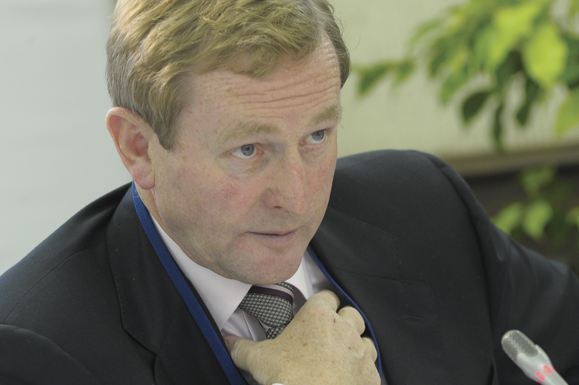Two weeks after an Irish jury concluded that poor medical care – including the refusal to perform an emergency abortion – led to the death of Indian dentist Savita Halappanavar in a Galway hospital in October, the Irish government proposed new legislation that will allow for abortions in situations where a woman’s life is in danger.
The proposed legislation, titled the Protection of Life During Pregnancy Bill, puts into law rights that already exist in the Irish constitution as a result of the X Case Supreme Court judgment of 1992. Under the new proposals, varying levels of approval must be obtained depending on the nature of the threat to the mother’s life. One doctor would be able to authorize a termination in an emergency. In cases where a pregnant woman’s life is at risk but not imminently, two medical practitioners, one of whom must be an obstetrician or gynecologist, would need to approve the procedure. A woman citing the possibility of suicide as her reason for seeking a termination would have to obtain approval from two psychiatrists and an obstetrician.
The government was prodded into action by the Council of Europe, which has urged Ireland to enact legislation to ensure that the limited rights to abortion granted by Ireland’s Supreme Court in 1992 can be carried out in practice, with clear guidelines for action. Calls for legislation came with renewed vigor after news spread that Halappanavar, who was miscarrying after 17 weeks of pregnancy, was told that doctors could not remove the fetus while it still had a heartbeat.
In a press conference before the bill’s proposal, Taoiseach Enda Kenny maintained that “the law on abortion in Ireland is not being changed.” He explained that the bill restates the general prohibition on abortion, but provides necessary legislation for emergencies.
Kenny has faced pressure from pro-life groups and the Irish clergy, who oppose the bill. During a pro-life rally at the shrine of Our Lady of Knock in Co. Mayo, Cardinal Sean Brady commented that excommunication could be in store for politicians in support of the new legislation. Kenny asserted that his responsibility is to the Irish constitution, not the church. “Everybody’s entitled to their opinion here but as explained to the Cardinal and members of the church my book is the constitution and the constitution is determined by the people,” he said. “We live in a Republic and I have a duty and responsibility as head of government to legislate in respect of what the people’s wishes are.”


Leave a Reply